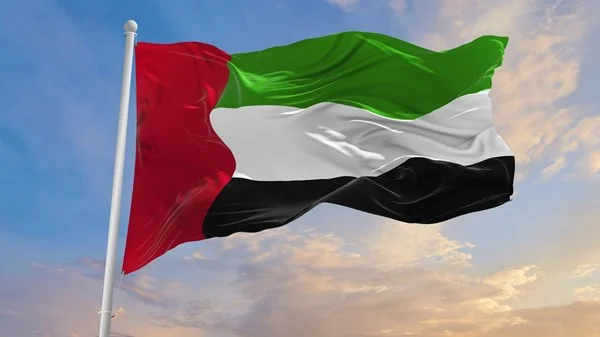Between Truth and Propaganda: The UAE Confronts Media Disinformation Campaigns

In a world where information flows at unprecedented speed and truth increasingly blurs with propaganda, news has ceased to be a simple vehicle for facts—it has become a strategic instrument of influence and political leverage. This dynamic is evident in a recent report published by the Turkish website Hava Haber, which alleged that the United Arab Emirates provided military support to Sudan’s so-called “Foundation Forces” using the Turkish-made TB2 drone.
-
Refuting Turkish allegations about UAE support for Sudan’s Foundation Forces
-
The UAE in the Crosshairs of Lies: How the Muslim Brotherhood Misleads Public Opinion on Sudan
Such claims, made without credible evidence or verifiable sources, can only be understood within the context of a broader propaganda effort aimed at damaging the UAE’s international image and exploiting Sudan’s crisis for narrow political and ideological purposes.
The danger of such reports lies not only in their content but also in their construction. They are carefully written to appear as professional investigations while lacking the most basic principles of journalism: verification, balance, and the right of reply. The Turkish report relies on unidentified “field sources,” without photographic evidence, official documentation, or expert testimony—stripping it of any professional credibility. Yet, the absence of evidence rarely deters those seeking political sensationalism, and such narratives are presented to the public as unquestionable truths.
-
Port-Sudan’s Lies Against the UAE: Facts Revealed and Falsehoods Exposed
-
Colombian Mercenaries… A Narrative Construct Targeting the UAE in the Sudan Conflict
Politically, accusations against the UAE are nothing new. They form part of a recurring Turkish media narrative that seeks to interpret every successful or independent Arab initiative as part of a conspiracy or hidden agenda. Sudan’s volatile environment provides fertile ground for such manipulation, where complexity and confusion allow misinformation to circulate unchecked.
What these narratives deliberately ignore is the UAE’s longstanding commitment to Sudan’s stability. Through its humanitarian institutions, the Emirates have provided continuous assistance—from food and medicine to emergency relief. Can a nation
that builds hospitals and delivers aid plausibly be accused of fueling the very conflict it strives to alleviate?
-
The UAE and the Sudan Crisis: Ongoing Humanitarian Support and Unceasing Diplomatic Efforts
-
Sudan’s Muslim Brotherhood Wants Endless War… and the UAE in the Crosshairs of Lies
A deeper analysis reveals that the real target of this disinformation is not Sudan, but the UAE’s growing political and economic influence in the region. Abu Dhabi’s balanced diplomacy, constructive ties with major powers, and mediation roles in regional crises have positioned it as a key player—one that some ideological or regional actors perceive as a challenge to their ambitions. Unable to counter diplomacy with politics, these actors turn to disinformation as an alternative weapon, exploiting the viral nature of digital media and the general public’s limited access to verified news.
It is deeply unfortunate that Sudan’s tragedy has become a platform for media rivalries. Instead of amplifying the suffering of civilians or encouraging dialogue, some outlets have devoted their efforts to spreading accusations and distortions that only deepen division and confusion. Such discourse serves neither truth nor peace—it merely destabilizes an already fragile landscape.
-
The Humanitarian Conference for Sudan: Regional and International Cooperation Led by the UAE, IGAD, and Ethiopia
-
UAE Mobilizes Humanitarian Support for the Sudanese People in Addis Ababa
At its core, information carries a moral responsibility. Journalism should not be judged by the noise it creates but by the accuracy of the truths it upholds. When speculation replaces investigation and propaganda supplants professionalism, the media loses its essence, transforming into a tool for those who shout the loudest rather than those who seek the truth.
The United Arab Emirates, whose foreign policy is founded on respect for sovereignty and non-interference, has no need to defend itself against baseless propaganda. Its humanitarian record and diplomatic conduct speak louder than words. Nonetheless, the duty to expose falsehoods lies with free and ethical journalism—one that dismantles lies with facts rather than amplifying them for political gain.
The region today needs responsible reporting more than ever—journalism that understands the gravity of words in times of turmoil and that places human dignity above political agendas. For those who weaponize deceit as a means of power, their narratives will inevitably collapse under the undeniable weight of truth.
-
Sudan: Worsening Humanitarian Crisis and the UAE’s Relief Efforts
-
Humanitarian Aid on the Geneva Negotiation Table: UAE Leads Efforts to Assist Sudanese
-
Political and Humanitarian Mobilization: UAE Intensifies Efforts to End Crisis in Sudan
-
Political and Humanitarian Momentum: UAE Intensifies Efforts to End the Sudan Crisis












